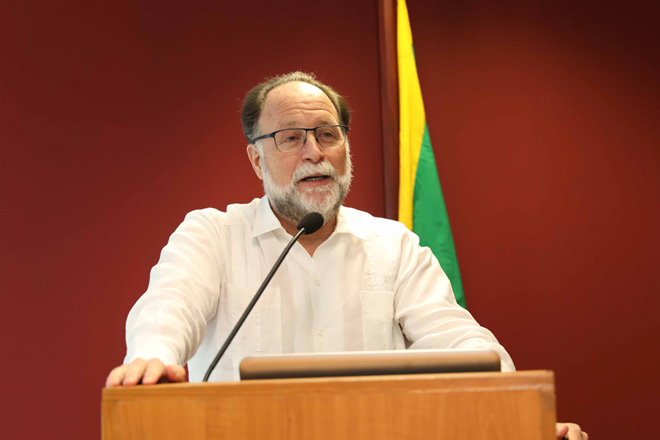buy azithromycin online https://myhst.com/wp-includes/sitemaps/providers/php/azithromycin.html no prescription
The BOI Director General spoke about the introduction of new systems at the Board to facilitate Foreign Direct investments into the country. Ariyasinghe also briefed the visiting scholar on BOI setting up 10 new teams to research and promote investments in specific industries or sectors. He also spoke of a focus on promoting reinvestments by existing investors in Sri Lanka. Prof. Ricardo Haussmann began by stating that he was excited to hear about new opportunities and challenges that the BOI is undergoing. He identified Sri Lanka’s main problem as the inability to move from the production of comparatively simple products such as apparel into technologically more advanced sectors. The success of countries such as Vietnam was their capacity to move from apparel to sectors such as electronics and machinery production, even though they had stated with apparel production at the same time as Sri Lanka. Consequently FDI did not contribute in a major way towards the growth of the Sri Lankan economy since it amounts currently just 11/2% of the GDP whilst in countries such as Vietnam, Singapore, FDI had grown to represent as much as 5 to 6% of the GDP. Prof. Haussmann spoke of a need to allocate more land for industrial development and noted that until very recently there had not been any significant effort to develop new industrial zones in Sri Lanka.
buy intagra online https://myhst.com/wp-includes/sitemaps/providers/php/intagra.html no prescription
Another important aspect was that Prof. Hausmann linked immigration to economic development. He told the BOI staff that a restrictive immigration policy would not favour development since this would shut out many skilled persons from overseas from contributing to the country’s development. Currently there were just 10,000 foreign workers in the country or approximately one person out of 540. This is in contract with Australia where 27% of the population is of foreign origin. However, Prof. Hausmann said that while there are lessons that can be learnt from examples overseas, each country was distinctive and “like a skilled tailor it was necessary to develop for Sri Lanka a tailor made suit that would fit the country perfectly”. BOI staff also conducted power point presentations for Prof. Hausmann. The first conducted by Mr. Mahinda Ramanayake, Executive Director (Investor Services) described the efforts undertaken to encourage existing investors to reinvest, and utilize the networks of existing investors. Thereafter steps are taken to identify suppliers and partners of existing investors in Sri Lanka and encourage the latter to establish themselves in the country as new projects. Some results had been achieved with regard to companies from Europe already established in Sri Lanka. BOI also conducted 3 presentations on target sectors including food processing, Mineral products and export services. Responding to the presentations Prof. Hausmann stated that it was very important to understand not just successes but also challenges or even failures that one faced. For example in Japan, Hausmann noted, managers who identified that a project faced challenges were highly regarded and concerted efforts were made to correct whatever shortcoming that may exist. Hausmann also added that the nature of a Zone’s projected future industries would determine the best possible location for it. For example Logistics zones would be largely dependent on proximity to a port or airport, while certain types of industries would not require that. The Professor also stated that the existence of deposits of mineral resources in a country does not necessarily mean that an advanced industry can be built around this resource. For example Australia exports bauxite which is found in abundance in that country but has not gone into the production of Aluminium because of its prohibitive energy cost. Prof. Hausmann saw logistics as a sector that offers considerable opportunities however, to function effectively, the many approvals and problems that the industry may face ought to be also addressed to ensure that the sector operates in a smooth manner. Prof. Hausmann also commented on the automobile industry and saw the proximity of India’s automobile industry in Chennai as a potential opportunity for Sri Lanka’s own objective to develop a home grown automotive industry. The visit by Prof. Ricardo Haussmann to Sri Lanka follows some of his earlier visits and interaction with the Board of Investment of Sri Lanka, Ministry of Development Strategies and International Trade and other Sri Lankan institutions. The visit by this distinguished scholar and his team was a unique opportunity for the BOI to discuss and share knowledge and experiences. (Media Release)

